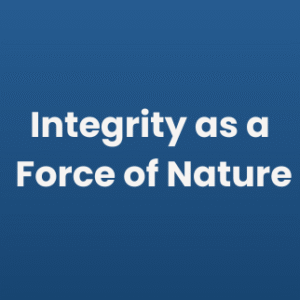
Why Leaders Struggle and How Not To – A Neuroscience Perspective
We tend to think that if we spend enough years in a corporate job, we become a leader. Leaders are probably great at their business and work. That’s part of the reason why they managed to climb up the corporate ladder. However, most leaders have never studied leadership. Study leadership? you might ask. Leaders do attend standard leader development training and workshops when they are transitioning into a leadership role. They definitely are exposed to a few leadership concepts and key responsibilities, but the truth is, leaders are often left to fend for themselves.
The amount of stress the average leader faces in their day to day life, balancing work, people’s expectations, and personal life is immense. They have no one to turn to. They are the leaders. People go to them. Most leaders strive through intense periods of stress with the help of peer support. They might get mentored by a senior leader, who gives them perspective on the things to do and career advice. They struggle managing priorities of inspiring performance in their teams while getting their work done. Most leaders might hesitate to agree immediately, but deep inside, we know it is true. Being a leader is difficult.
Part of the reason behind the struggle is the balance between doing the work they are great at doing and leading people towards a vision. Research in neuroscience (Boyatzis, Rochford, and Jack – 2014) explains how we access two different neural networks in analytical processing required for getting things done which is the primary mode for ‘Task-Oriented Leadership’ and the emotional intelligence needed for effective leadership, which is the mode of the ‘Socio-Emotional Leader’. Both of these approaches are equally important for leaders, and we barely are aware of which mode we are operating in and which is the most effective model for the situation we are in. This is because the switching between these distinct networks happens below consciousness and the usage of one network actively tends to suppress the other. In other words, it is almost impossible for leaders to be aware of their leadership and optimize it without external non-judgmental support because our brains are wired in a way that it becomes a blind-spot for us.
The Role of the Professional Coach
Facilitating this level of meta-cognition is the job of the coach. A professional coach does not tell the leader what to do. They are not the subject matter expert in the leader’s business. They are not here to mentor. Leadership researcher and Professor Julia Milner wrote for Harvard Business Review on how managers tend to think they’re coaching when they’re just telling their employees what to do, and how leaders reinforce poor coaching practices.
Coaches do not bring in their own opinions of what they think is best for you. They do not want anything for you other than what you want for yourself. A coach takes on the responsibility of supporting leaders by making them aware of their blind-spots and unleashing their potential. A coach acknowledges and speaks out the unbiased truth that most people do not dare to speak to the leader. A coach acts as a mirror and helps the leader see – with empathy, compassion, and unconditional positive regard – what they were previously unaware of. By tapping into Positive Emotional Attractor (PEA), effective coaches encourage and inspire leaders. This naturally leads to higher awareness and growth, which is then reflected and measured in their increased leadership effectiveness and eventually the bottom-line.
The relevant question now is, what can a leader do? Firstly, acknowledging that the struggle is real and is backed by scientific research. Understanding that it is not the leader’s fault or conscious choice in being less than effective, but coming from a perspective of scope for growth. In fact, leaders think that they are really good at what they are doing. They are simply not aware or open to the possibility that they can do much better with much less stress. Secondly, seeking professional support for their own growth and development. This eases their struggle, helping them regain their presence and optimizing their performance as a leader.
The moment we know that we can use support and grow, it becomes common sense to use it. The acknowledgment that we can use support and grow forms a crucial step towards leadership excellence.




